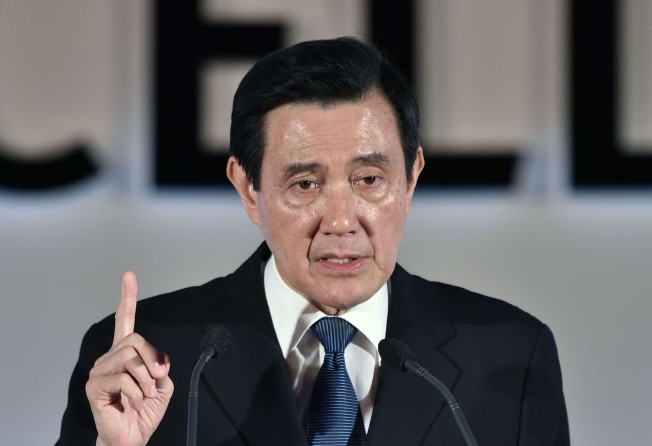Reasons for rejecting Ma Ying-jeou’s request to visit Hong Kong a blot on Taiwan’s image
It is ironic that a place with a vibrant media should block the attendance of a twice elected leader at a regional showcase for excellence in journalism

Taiwan is a robust democracy. But it is also no place for the faint-hearted, even after leaving office. Political retribution by a newly elected leader through investigation of a predecessor is not uncommon. President Tsai Ing-wen’s administration, sworn in less than a month ago, has not really shown its hand in that regard, despite concerns about a travel ban on Ma Ying-jeou.
Tsai’s rejection of her predecessor’s request to make a flying visit by open invitation to Hong Kong tomorrow may be based on a national security law. Regrettably, however, the circumstances will be a reminder to some of past political paybacks. The Society of Publishers in Asia had invited Ma to an awards presentation dinner, where he was to speak on cross-strait and East Asia relations. By law passed in 2003, former officials with access to classified national security information are subject to travel restrictions.
Taiwan’s Presidential Office cited a number of reasons for refusing Ma’s request, including the “sensitivity” of Hong Kong and short notice that made it difficult to discover what kind of security information Ma had accessed and whether he had returned documents. This is not an issue of the former Kuomintang president’s conduct in office. The decision may be defended by supporters and lawmakers of Tsai’s independence-leaning Democratic Progressive Party who feared he planned to promote the “1992 consensus” and the one-China principle. But these are subjects of open debate and, anyway, Ma is to be enabled to speak at the dinner via video conference.
It is hardly exceptional for former presidents to make overseas visits. Ma promised his trip would be transparent and last no more than seven hours. His appearance at one of Asia’s most prestigious news awards, before an international audience of journalists, would also have been good for Taiwan’s democratic image.
Many people would be puzzled by the implications in the official reasons for rejection of Ma’s visit that he would leak state secrets or betray Taiwan. They do not reflect well on the Tsai administration so early in its term of office.
Indeed, Ma is a seasoned political and government leader and public speaker who would have understood the protocols. It is ironic that a place with a thriving democracy and with a vibrant media should be blocking the attendance of a twice democratically elected leader at a regional showcase for excellence in journalism.